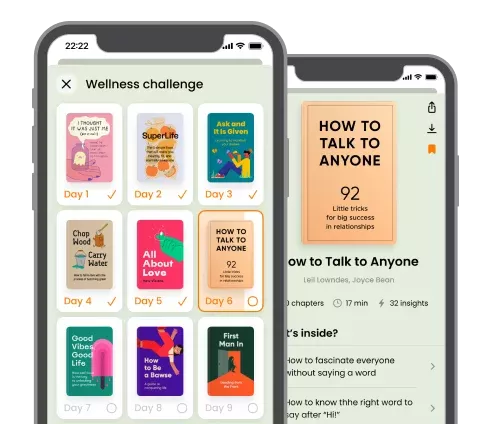112 Books on Networking to Put Your Name in Lights
Networking is an important skill for professionals, yet it’s sometimes difficult to master. Reading books on networking is essential for anyone looking to build professional relationships, expand their career opportunities, or enhance their social skills. With Headway, you can quickly read summaries of these crucial books, making your learning journey efficient and engaging. Pick your first title today!
